Hey there, friend! So, you’re curious about hydroxyzine and whether it can help with alcohol withdrawal? I’m so glad you’re here because, honestly, this stuff can feel overwhelming, and I’d love to walk you through it like we’re just chatting over a cozy cup of tea. Maybe you’re asking for yourself, or maybe it’s for someone you care about—either way, I’ve got your back. Alcohol withdrawal is no picnic, and figuring out what works can feel like a maze. So, let’s unravel this together: What’s hydroxyzine all about? Can it really help? And hey, while we’re at it, let’s tackle that big question: “Can I go to the hospital for alcohol detox?” Spoiler: Yes, you can, and sometimes it’s the smartest move. Ready? Let’s dive in!
What’s Hydroxyzine? A Little Background for You

Okay, picture this: Hydroxyzine is like that chill friend who shows up when you’re sneezing your head off from allergies. It’s an antihistamine—think Vistaril or Atarax—and it’s usually there to calm down itchy eyes or a runny nose. But here’s the cool part: It’s got this bonus superpower of making you feel calm and sleepy. Ever had one of those nights where your brain just won’t shut off? That’s where hydroxyzine steps in for some people, helping with anxiety or sleep troubles. Now, you might be scratching your head, thinking, “Wait, how does an allergy pill help with alcohol withdrawal?” I hear you, and we’re going to get there—promise!
Alcohol Withdrawal: What’s Happening Inside?

First, let’s talk about what alcohol withdrawal feels like because, wow, it’s a wild ride your body didn’t sign up for. When you’ve been drinking a lot—like, regularly—and then decide to stop, your brain throws a bit of a tantrum. Alcohol messes with something called GABA, which is like your brain’s chill pill. Without alcohol, your GABA levels go haywire, and suddenly you’re dealing with stuff like:
- Anxiety that makes you feel like you’re buzzing inside
- Shaky hands or tremors—super annoying, right?
- Sweating buckets, even when it’s not hot
- Nausea that just won’t quit
- Sleepless nights staring at the ceiling
- And in tough cases, seizures or even hallucinations—yikes!
It’s like your body’s saying, “Hey, where’d my buddy alcohol go?” And trust me, I feel for anyone going through this—it’s rough. That’s why finding the right help matters so much.
Hydroxyzine and Alcohol Withdrawal: A Blast from the Past

Now, let’s hop in a time machine for a sec. Back in the 1960s, hydroxyzine was kind of a rockstar for alcohol withdrawal. Doctors loved it because it could ease that jittery, anxious feeling and help people catch some Zs. Imagine this: You’re coming off alcohol, feeling like a nervous wreck, and hydroxyzine swoops in like a warm blanket. Sounds nice, huh? But here’s the twist—medicine’s evolved since then, and we’ve got some new players in the game. So, while hydroxyzine had its moment, it’s not the headliner anymore. Let’s find out why.
Does Hydroxyzine Still Hold Up Today?
Alright, here’s the scoop: These days, hydroxyzine isn’t the go-to for alcohol withdrawal. Doctors have found that other meds—like benzodiazepines (think Valium or Ativan)—are way better at handling the heavy stuff. Why? Because benzos work directly on those GABA receptors we talked about, calming your brain in a way that mimics alcohol’s effect. It’s like giving your brain a familiar hug to ease it through withdrawal.
But don’t count hydroxyzine out just yet! Some folks might still use it off-label—you know, for stuff it’s not officially approved for—to tackle milder symptoms like anxiety or insomnia. I mean, who doesn’t want a little calm in the storm? Still, it’s not the MVP here, and there’s a reason for that. Let’s peek at what the experts say.
What’s the Science Say About Hydroxyzine?

Okay, let’s geek out for a minute—don’t worry, I’ll keep it simple! Back in 1969, a study pitted hydroxyzine against a benzo called chlordiazepoxide (Librium). Guess what? Librium won by a landslide. Only 2% of people on it had severe symptoms like seizures or delirium tremens—that’s the scary stuff with confusion and hallucinations—while 10-16% on hydroxyzine did. Oof, that’s a gap! Later research, like a review in the Industrial Psychiatry Journal, backed this up, saying benzos are the champs at keeping withdrawal safe.
Why doesn’t hydroxyzine cut it? It’s not a GABA pro—it’s more like a chill pill that doesn’t fix the root problem. So, while it might take the edge off, it won’t stop the big, dangerous symptoms. Good to know, right?
Could Hydroxyzine Still Be Your Buddy?
So, is there ever a time hydroxyzine might still shine? Maybe! Picture this: You’re having mild withdrawal—like some anxiety or restless nights—and you’re not keen on benzos because they can be habit-forming. I get that—especially if you’ve fought addiction before, you don’t want to swap one crutch for another. A doctor might say, “Hey, let’s try hydroxyzine off-label to help you relax.” But—and this is a big but—it’s not going to guard against seizures or delirium. So, it’s a maybe, but only with a pro watching over you.
How Do You Know If Withdrawal Might Get Rough?
Here’s a question for you: How do you figure out if your withdrawal could turn serious? It’s tricky, but it often depends on how much you’ve been drinking and for how long. If you’ve had withdrawal before or you’re shaking like a leaf, that’s a clue. Severe signs—like seizures or seeing things—scream “Get help now!” Not sure? Chat with a doctor. They’re like your personal withdrawal detective, piecing it all together.
Hydroxyzine Side Effects: What’s the Catch?

Every med’s got its quirks, and hydroxyzine’s no exception. Most side effects are chill, like:
- Drowsiness—think “nap time” vibes
- Dizziness—watch those steps!
- Dry mouth—like you’ve been chewing cotton
- Maybe some blurry vision
No biggie for most, but there’s a rare chance of stuff like seizures or allergies. Oh, and heads-up: Mixing hydroxyzine with alcohol is a hard no. Both make you sleepy, and together? It’s like hitting the snooze button too hard—dangerous territory. So, if you’re detoxing, keep the booze far away.
Can I Go to the Hospital for Alcohol Detox? You Bet!

Alright, let’s tackle that question you’ve been mulling over: “Can I go to the hospital for alcohol detox?” Yes, yes, a thousand times yes! And honestly, sometimes it’s the best call you can make. If withdrawal’s hitting hard—think seizures, hallucinations, or feeling totally lost—a hospital’s got the tools to keep you safe. They’ll watch your heart, give you meds, and make sure you’re okay.
Even if it’s not that intense, a hospital or detox center can still be a lifesaver. Withdrawal’s sneaky—it can start mild and then boom, surprise you. Plus, pros can make it less miserable. Ever tried toughing it out alone? It’s like climbing a mountain with no gear. Why not let someone lend a hand?
When’s It Time to Head In?
Here’s your cheat sheet for when to bolt to the hospital:
- Seizures—scary and not worth risking
- Hallucinations—seeing stuff? Time to go
- Confusion that’s next-level
- Heart racing like a drum solo
- Dark thoughts—don’t wait, reach out
If any of these pop up, call 911 or get there fast. Withdrawal can turn deadly, and you’re too awesome to take that chance.
Should You Lean on Hydroxyzine for This?
So, back to our pal hydroxyzine—should you use it for alcohol withdrawal? Here’s my take: It’s not the star player. It might help with jitters or sleep, but it’s not stopping the big risks. Benzos are the pros for that. Still, if your symptoms are light and you’re dodging benzos, maybe it’s worth a chat with your doc. Just don’t go DIY—trust me, it’s not a solo mission.
What’s the Best Way to Tackle Withdrawal?

Want the VIP treatment lineup? Here’s what doctors love:
- Benzos: The A-listers—Valium, Ativan, Librium—keeping things calm
- Anticonvulsants: Think gabapentin for lighter cases
- Support: IV fluids, vitamins (hello, thiamine!), and TLC
In a hospital, they’ll mix and match to fit you perfectly. It’s like a custom smoothie for your recovery!
Detoxing at Home—Good Idea or Nah?
I see you wondering, “Can I just detox at home?” Maybe, but I wouldn’t bet on it without backup. Mild symptoms might tempt you to stay put, but withdrawal’s a wild card—it can escalate fast. A doctor’s okay might work, with meds to ease the way, but honestly? A hospital’s safer and comfier. Why go it alone when help’s out there?
Let’s Wrap This Up, Friend
So, here’s the deal: Hydroxyzine had its day for alcohol withdrawal, but it’s not the hero now. It’s a sidekick at best—great for small stuff, not the heavy hitters. If you’re facing withdrawal, don’t mess around—get medical help, especially if it’s rough. Yes, you can go to the hospital for alcohol detox, and it might just be your golden ticket.
You’re not in this alone, okay? Tons of folks wrestle with this, and there’s support waiting. In the U.S., hit up SAMHSA’s National Helpline at 1-800-662-HELP (4357) or TTY 1-800-487-4889, this is a free, 24-hour, confidential treatment referral and information service. (English & Spanish)—they’re amazing. Got thoughts or a story to share? Drop it in the comments—I’d love to hear from you. We’re all cheering you on!
Want more info? Check out SAMHSA’s National Helpline for some solid resources.
Hey, thanks for hanging out with me through this! If it helped, share it with someone who needs it. And if you’ve got questions, hit me up below. You’ve got this, and I’m rooting for you!

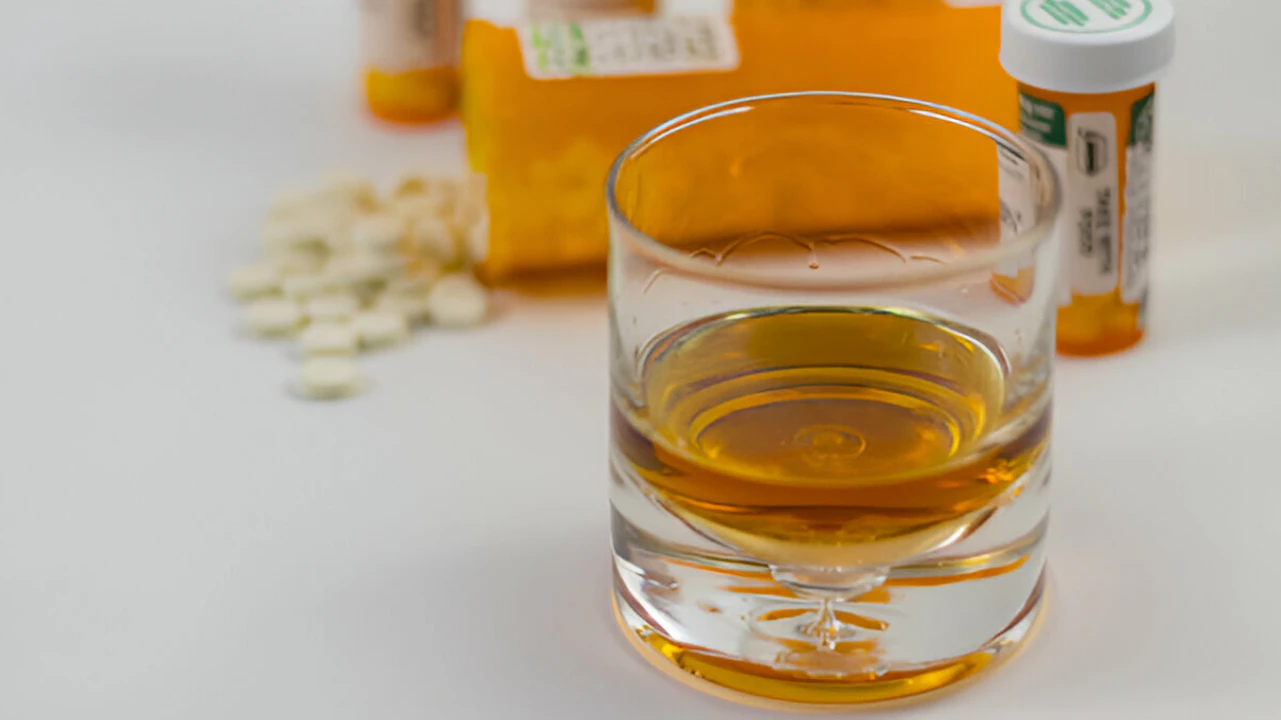


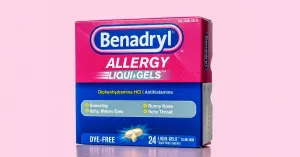
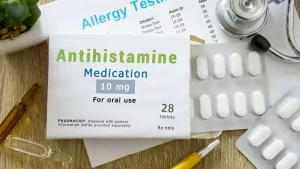




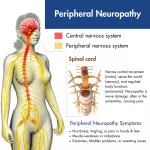






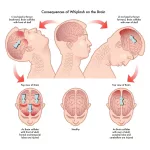
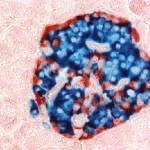

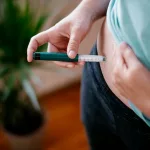



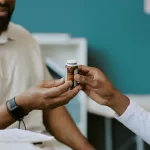
Leave a Reply
You must be logged in to post a comment.